As a duck keeper, I often encounter the question: can ducks eat bread? Through my journey in caring for these delightful birds, I’ve learned that while ducks will eagerly eat bread, it’s not a nutritious choice for them. This seemingly harmless act of feeding ducks bread, often done with the best of intentions, can actually be detrimental to their health and disrupt the delicate balance of their diet.
My experience with my flock has taught me the importance of providing a diet that mimics what ducks would find in the wild. This understanding didn’t come overnight but through observation and a deep desire to ensure the well-being of my feathered charges. It’s a responsibility that has transformed my simple hobby into a meaningful part of my daily life, enriching my understanding of these fascinating creatures and their dietary needs.

Understanding the Diet of Ducks
When we see ducks in our local parks and ponds, it’s common to want to feed them. But what do these feathered friends naturally eat, and how does our human food, particularly bread, fit into their diet? Understanding the natural dietary habits of ducks and the importance of their nutrition is crucial before we throw our leftover crumbs their way.
Natural Dietary Habits
In the wild, ducks enjoy a varied diet, including seeds, insects, and small aquatic creatures. This natural diet is carefully balanced to meet their nutritional needs, ensuring their health and vitality in their natural habitats.
Why Proper Nutrition Matters
The nutritional needs of ducks are specific and vital for their growth, development, and overall health. An understanding of what constitutes a healthy diet for ducks helps in realizing why certain popular feeding practices, like offering bread, might be more harmful than helpful.
[DuckAffiliate]
The Truth About Bread and Ducks
There’s a longstanding tradition of feeding bread to ducks, but it’s important to examine whether this is beneficial for them. Understanding what bread is made of and its impact on ducks’ health reveals why this common practice might need reconsideration.
Composition of Bread
Bread, a staple in many human diets, is primarily made from ingredients that are not suitable for ducks. It lacks the essential nutrients that ducks need, functioning more as a filler than a food source that contributes to their well-being.
Consequences of a Bread Diet
While ducks may eagerly eat bread, its long-term effects are concerning. Feeding ducks bread can lead to nutritional imbalances, health issues, and alterations in their natural behaviors, highlighting the importance of rethinking this feeding habit.
Risks of Feeding Bread to Ducks
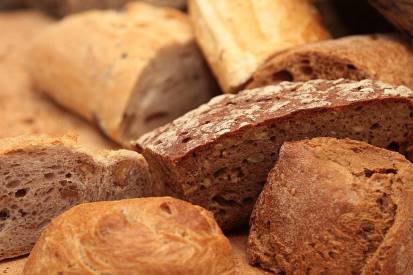
Feeding bread to ducks is a tradition that many of us have participated in, but it’s vital to understand the risks associated with this practice. From health concerns for the ducks to environmental impacts, the implications are far-reaching.
Health Implications for Ducks
The primary concern with feeding bread to ducks is the risk of malnutrition and associated health problems. Bread lacks the necessary nutrients that ducks need, leading to a host of potential health issues that could significantly impact their well-being.
Environmental and Behavioral Impacts
Beyond individual health, the practice of feeding bread to ducks has broader environmental consequences. Uneaten bread can pollute waterways, and habitual feeding alters the natural behavior of ducks, affecting their survival skills and interactions within their ecosystems.
Impact on Duck’s Behavior and Health
Regularly feeding bread to ducks can drastically alter their behavior. They may become dependent on human-provided foods, losing their instincts to forage. This behavioral change not only affects their health but can also lead to aggressive tendencies, particularly in areas where food from humans is abundant.
Environmental Consequences
The environmental impact of feeding bread to ducks is significant. Leftover bread can pollute water bodies, leading to algal blooms and decreased water quality. Additionally, it can attract pests and disrupt the local ecosystem.
The Problem with Overcrowding
Another notable issue is overcrowding. Ducks tend to flock to areas where they are regularly fed. This not only strains the local habitat but also increases competition among ducks and other wildlife for resources, leading to an imbalance in the ecosystem.
Healthier Alternatives to Bread
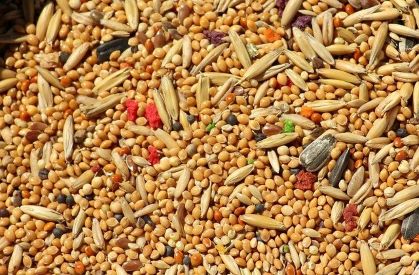
Choosing healthier alternatives to bread can significantly benefit the ducks we enjoy watching and feeding. By offering foods that are closer to their natural diet, we contribute to their health and the well-being of their habitat.
Recommended Foods for Ducks
Instead of bread, consider feeding ducks grains like oats, rice, or birdseed, which are more nutritious and closer to their natural diet. Vegetables like peas or corn can also be excellent choices, offering both nutrition and variety.
How to Feed Ducks Responsibly
Responsible feeding is about moderation and variety. Avoid overfeeding, which can lead to health and environmental problems, and ensure the food is scattered to encourage natural foraging behavior. This approach not only benefits the ducks but also helps maintain the ecological balance.
Benefits of a Varied Diet for Ducks
A varied diet is essential for the health of ducks. It ensures they receive a range of nutrients and maintain their natural foraging skills. By offering a variety of suitable foods, we can help support the health and natural behavior of these delightful birds.
Educating the Public
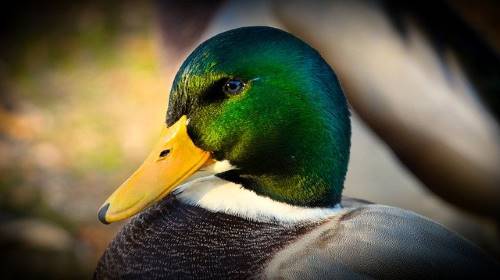
Raising public awareness about the proper feeding of ducks is crucial in wildlife conservation efforts. Dispelling myths and sharing accurate information can make a significant difference in how we interact with and protect these animals.
Myths vs. Facts: Feeding Wild Ducks
There are many myths about what is acceptable to feed ducks. Educating the public about the risks associated with feeding bread and what constitutes a healthy diet for ducks is essential in changing longstanding habits.
Role of Public Awareness in Wildlife Conservation
Public awareness plays a significant role in wildlife conservation. When people are informed about the impact of their actions, they’re more likely to make choices that positively affect wildlife and their habitats.
How You Can Help Protect Duck Populations
Individuals can contribute to protecting duck populations by choosing to feed them appropriate foods, advocating for wildlife-friendly practices in their communities, and participating in local conservation efforts. Every small action can make a big difference in the well-being of our feathered friends.
Common Questions About Feeding Ducks
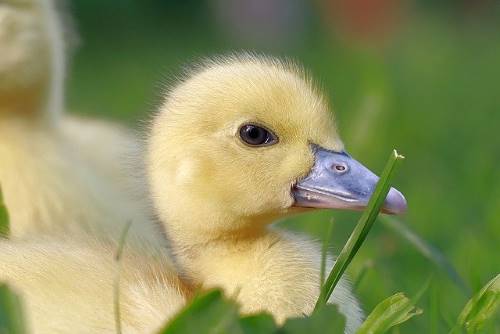
As we reconsider our practices of feeding ducks, several common questions arise. Addressing these questions is crucial in guiding people towards more responsible and beneficial interactions with ducks.
Is Any Bread Safe for Ducks?
While some might think that certain types of bread are less harmful, the reality is that no bread provides the nutrition ducks need. Sticking to healthier alternatives is always the best choice.
What to Do If You’ve Been Feeding Ducks Bread?
If you’ve been feeding bread to ducks, don’t worry – it’s never too late to change. Start introducing healthier food options and spread the word to others. Your actions can have a positive impact on local duck populations.
How to Responsibly Enjoy Duck Feeding Activities
Duck feeding can be a delightful activity for families and nature lovers. By choosing healthy foods and practicing responsible feeding habits, you can enjoy this pastime while contributing positively to the health and welfare of ducks.
What other foods are not suitable for ducks?
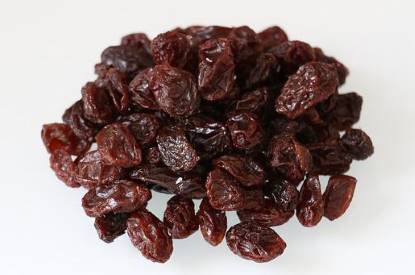
In our journey to understand what ducks can safely munch on, apart from bread, it’s important to explore a variety of commonly available foods. While we might be tempted to share our snacks with these adorable creatures, not all human foods are suitable for ducks. Let’s dive into five specific items and discover whether they make a duck-friendly diet.
Raisins
Raisins, the dried grapes we often enjoy as snacks, can be a tricky item for ducks. In small quantities, they can be an occasional treat due to their natural sugars and nutritional value. However, raisins should be given sparingly. They can cause digestive issues if consumed in large amounts, and their small size might pose a choking hazard. So, while not outright harmful, they’re not the best choice for ducks.
Read More: Can Ducks Eat Raisins? Unveiling Duck Diet Myths
Cheese
Cheese is a dairy product that ducks generally should avoid. Ducks, like many birds, are not equipped to process dairy products efficiently. Feeding cheese to ducks can lead to digestive problems and discomfort. It’s best to keep our cheesy snacks to ourselves and opt for more duck-friendly treats.
Read More: Can Ducks Eat Cheese? Exploring The Genuine Risks
Avocado
Avocado, despite being a healthy fat source for humans, is a big no for ducks. The fruit contains persin, a substance that can be toxic to birds. Even small amounts of avocado can be harmful, so it’s best to ensure that ducks don’t have access to this popular human food.
Read More: Can Ducks Eat Avocados? The Dangers And Risks
Pizza
Pizza, as tempting as it might be to share with our feathered friends, is not suitable for ducks. The combination of bread, cheese, and various toppings (many of which may be harmful to ducks) makes pizza a poor choice for them. High in fats and lacking the nutrients ducks need, pizza should stay on our plates, not in our ponds.
Read More: Can Ducks Eat Pizza? 3 Reasons It’s A Bad Idea
Tortillas
Tortillas, much like bread, are not an ideal food for ducks. While not toxic, they are low in the essential nutrients that ducks require and can fill them up without providing any real nutritional benefit. Moreover, tortillas can swell up inside a duck’s stomach, potentially causing digestive issues. It’s better to avoid feeding tortillas to ducks and stick to more natural options.
Read More: Can Ducks Eat Tortillas? 2 Reasons It’s Not A Good Idea
Can ducks eat bread – final thoughts
In wrapping up our feathery tale about whether ducks can eat bread, it’s clear that while our web-footed friends might gobble up those doughy delights with gusto, bread is more of a duck donut than a healthy meal. From the nutritional no-nos of a bread-based diet to the surprising effects on duck behavior and local ecosystems, we’ve waddled through some eye-opening facts. Just like us, ducks thrive on a balanced diet, and bread, unfortunately, doesn’t make the cut.
So, next time you’re by the pond with a bag of stale bread, remember that there are better ways to show our feathered friends some love. Opt for grains, birdseed, or veggies, and watch them dive in with delight. By feeding ducks responsibly and spreading the word, you’re not just a duck feeder; you’re a duck hero, helping to keep their quacks happy and habitats healthy.
